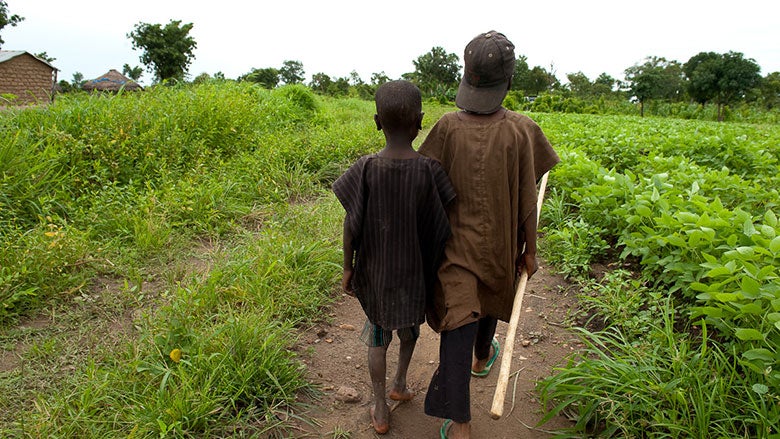
Laws that protect and defend the rights of poor people are usually too ambiguous, cumbersome and expensive for them to access justice. In many developing countries, particularly in my home country of Nigeria, informal norms, practices and society govern the everyday life of poor citizens.
As I shared in my recent World Bank Group 2018 Law Student Contest for Development Solutions proposal, I feel that legally empowering people will go a long way in eradicating poverty in Nigeria. Empowering people to eradicate poverty connotes developing and enforcing clearer polices that appropriately address the distinctive needs of individuals. For instance, according to African Development Bank and Nigerian Government sources, the majority of adult poor people residing in the northern part of Nigeria are women. With World Bank support, legal empowerment efforts could support women-focused legal awareness, literacy programs and campaigns on gender equality to foster and empower them to demand justice when needed.
Legal empowerment of Nigeria’s poor people also includes raising society’s legal awareness level. I believe that one way this can be achieved is through the creation of comprehensive access to legal services, including judicial services. There are several societal-based initiatives and civil society organizations in Nigeria already working on these issues; with World Bank support, they could do more.
In fostering legal empowerment of poor people, national and sub-national poverty eradication strategies could include unusual programs to provide free, unbiased and equal access of poor citizens to courts. This can be actualized by the support of a legal aid program or pro bono, both in civil and criminal proceedings. The World Bank could also advise and work with the government to establish modern, non-formal dispute resolution mechanisms that are efficient, accessible to all citizens, and reliable with all of Nigeria’s relevant human rights principles and standards.
Initiatives to help spur legal empowerment among poor citizens should also support economic and social movements, to reinforce the voice of the poor and marginalized people and protect their rights. For example, a legal empowerment program could focus on endorsing a comprehensive and pro-poor property rights mechanism, ensuring fair and sustainable access to land and other natural resources taking into consideration the imperatives of food security and sustainable living. This could help poor citizens enjoy the security and stability of occupancy so that they do not live on a steady fear of movement, displacement and eviction. Right to and ownership of land and effective land governance, both in rural and urban areas, can mitigate the risks of occupancy insecurity and facilitate poverty eradication.
Legal empowerment must be strongly anchored in the certainties of poverty and exclusion. It requires changes in the relationships between the state, poor citizens, and their relative powers. By its very nature, legal empowerment campaigns have the potential to threaten some vested interests. In some cases, there will be winners and losers, particularly as mutual payoff from legal empowerment is often not evident. In some cases, powerful economic personnel may organize effectively to block reforms that could empower poor citizens and the disadvantaged. In others, elites may try to influence reforms to yield advantage for themselves.
Persuading those who feel threatened by legal empowerment of its benefits is a challenge that can be overcome, for example, by building alliances with stakeholders and seeking ways to overcome cultural impediments to a legal empowerment campaign.
Legal and judicial reform should also be introduced so as to put existing laws in Nigeria under review. With this, legal education and legal awareness by all of Nigeria’s citizens will further help in creating legal equality throughout the country.
This blog post is one of several winning proposals from the first LJD Week 2018 Law Student Contest for Development Solutions, a competition for young African students to present innovative legal solutions to development challenges. The top two winners, Mawunya Kudu and Colman Ntugwerisho, were invited to present their proposals to the LJD Week 2018 audience; see their presentations here.


Join the Conversation